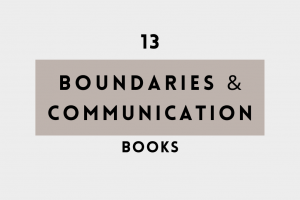Resources
Comparison of Disciplines Chart
These days there are so many terms for professionals who help you meet goals or move toward life changes- but what does it all mean, and which one should you hire? Perhaps you already have an idea which area of life you need support, but from whom? Coaches, counselors/therapists, consultants, advisors, spiritual or pastoral counselors, mentors…there are so many options out there!
We find it helpful to distinguish what these services are, and it is ethically necessary to share the differences between these service types.
Here are some helpful definitions:
Coach (life coach, leadership coach, ect) – A collaborator who asks the right questions, provides structure, and a process to maximize the potential for a future experience in the client’s career, business, or any area of life. The focus is on the future with an emphasis on vision and growth. Coaches are not required to have specific training or certifications, nor are they experts in any specific industry.
Consultant (advisor, executive coach, speaker, trainer, ect) – A subject matter expert through experience or training and provides advice, answers, and resources to an organization, business, or individual. The focus is mainly on a project, problem, or performance and is exclusively professional in context. Consultants should have training or experience specific to the area of expertise.
Therapist (counselor, psychologist, mental health provider, etc) – A licensed professional who provides clinical knowledge and expertise to facilitate a healing process. The focus is on the past or present and specifically mental health and healing. Professional training and licensing is required and regulated at the state level. In Iowa you might see these letters after their names: LMHC, LISW, LMFT, LCSW, or LPC.
Pastoral Counselor (pastor, minister, spiritual direction, director, ect.) – A companion who notices God’s presence, prays, listens, and occasionally gives biblical guidance. Bible training and pastoral certification is available and commonly expected. They differ from a counselor because they are not licensed, regulated, nor do they have mental health expertise.
Mentor (church leader, sponsor, discipleship, friend, ect) – A companion who has gone before and can lead by example or share advice.
If we take these definitions and think of it like building a house, where the house is your life:

A coach is going to ask you questions, learn about your vision, and give you a blueprint to build the house. A licensed therapist will help you clear out the debris and create a strong foundation for your house. The Consultants are the various experts (electrician, plumbing, builders) that help build the walls and windows in your house; they know what to do and how to get your house built properly. A mentor is that friend that recently built a house; they can recommend professionals and offer advice based on their personal experience, but they are not experts. And finally, a pastoral counselor can offer spiritual advice about how God says your house should be built and decorated inside.
You might be thinking- “that’s great, but which one should I hire?”
When to hire a…
Coach
A coach is not a cheerleader or a healer. They partner with you to win your game of life. You are the expert of your life, a coach simply asks the right questions, listens, and challenges you to reach your future vision. Perhaps you are unsure what your vision is; through the listening process a coach will help you identify your vision and your personal road map to success.
A coach is a paid guide and collaborator. They first help you to discover your roadmap by asking the right questions of you, questions that reveals your vision for your future. Then they help you create a process (your roadmap) and give you structure and tools to follow that roadmap. Essentially a coach helps you live your life on purpose.
Why hire a coach?
You are looking to change something in your life or career. You maybe need help discovering your vision or need accountability to achieve your vision.
Consultant
A consultant may also be called an executive coach, advisor, speaker, or trainer. Consultants are experts in a subject; they are paid for industry experience, expert guidance, and execution. Whereas Coaches don’t need to be experts of an industry. Consultants will give proven methods and strategies to help you reach your personal and professional goals.
A branding consultant will look at your brand and give you advice and strategies to improve your branding; they do not create a logo or tell you what colors to choose. A marketing consultant will analyze your marketing in its entirety; then they will identify problems, provide reports, a SWOT analysis, and give personalized, data driven recommendations. Finally, they can teach you how to implement a new marketing plan.
Why hire a consultant?
You know where you want to be, but need the tools, strategy, or structure to help you get there.
Therapist/ Mental Health Counselor
nCoaching and consulting is not therapeutic in nature, nor are they focused on mental health. Therapy is focused on understanding the impact of mental health on an individual’s life and helping them to heal. If a client is stuck in achieving their life goals because of a past trauma, it is out of the scope of practice and unethical for a coach or consultant to help the client work through their mental health issues. Mental health counseling is regulated by the state and a license is required. Where a counselor may be qualified to wear a coaching hat, a coach cannot wear the counseling hat without special licensure.n
Why hire a Counselor?
You are feeling stuck, displaying maladaptive emotional and behavioral symptoms, self-sabotaging, or not functioning optimally in your life. You need help reflecting on the past and making connections to your current functioning in order to heal.
Pastoral Counselor
A pastoral counselor is not a licensed mental health counselor and are not equipped to handle mental health needs like a licensed mental health counselor. Often believers will seek out advice from their minister/pastor/priest for any area of their personal lives. For example, people may seek marriage “counseling” from their pastor. While a pastor is uniquely equipped to tell you what the Bible says about marriage, they aren’t necessarily experts on the many facets of marriage or the mental health pitfalls that impact a marriage.
Occasionally you will see Christian mental health counselors; these are licensed mental health counselors that incorporate faith, bible teaching, and even prayer into the therapeutic process. The Christian mental health counselor may or may not hold a pastoral/ bible degree.
Why seek Pastoral Counseling?
You are looking to grow deeper in knowledge of God, or you are looking for biblical direction and practical life application regarding a specific circumstance. Ultimately a pastoral counselor will pray with you, listen, occasionally give biblical guidance, and help you notice and respond to God’s direction.
Mentor
A mentorship is typically a free service that can help you avoid mistakes and pitfalls that the mentor experienced in their life or career journey. This is someone who can maybe share contacts and connections with you. Great mentors are seasoned leaders who lead busy lives; be sure to go into the relationship with an open mind and heed the advice given. They are giving of their time and effort because they want to see you succeed. They are investing in you.
Why seek a Mentorship?
You are looking for someone who has been there, done that and is willing to sharing openly with you about their experiences. You could be looking for a spiritual mentor for spiritual growth and maturity, a sponsor for accountability, a business mentor for connections and advice, or just a respected friend who is willing to invest in you.
The following checklists are self-discovery tools that are useful in determining areas in which you may desire to make changes and improvements. This awareness will help you and your counselor begin your journey toward a more satisfying lifen
- 5 Love Languages Quiz. Find your love language
- 15 Styles of Distorted Thinking
- Checklist for Hidden Anger
- Co-Dependent Control Techniques
- Assessment Questions: Sexual Addiction
- Fair Fighting Self-Assessment
The following tools are the copyrighted intellectual property of Dr. Gilbert. These are for personal self-discovery.
- Feeling Word Vocabulary
- Dealing With our Emotions Worksheet
- Effective Communication
- Thought Journal Template
- Possible Intimacy Needs from a Biblical Perspective
- Anatomy of an Affair
- ABCD Method of Sharing
Articles:
Our client forms need to be completed on your patient portal. You can login to your portal using the link below. If you haven't set up your portal yet you can fill out new patient paperwork during your initial session on our kiosk in the office.
- Notice of Privacy Practices
- Patient Portal
- Step by step guide to check insurance mental health benefits
- Helpful Insurance Terms and Definitions
- Payment Plan Consent form
- Financial Assistance Program Policy
- Financial Assistance Policy Plain Language Summary
- Financial Assistance Application
- List of providers- financial assistance program
These worksheets and articles are the copyrighted intellectual property of Dr. Gilbert. If you wish to use these resources other than for personal self-discovery, please contact Dr. Gilbert's office, 515-225-4006, for written permission.
You may download Adobe Acrobat Reader to open these documents.










